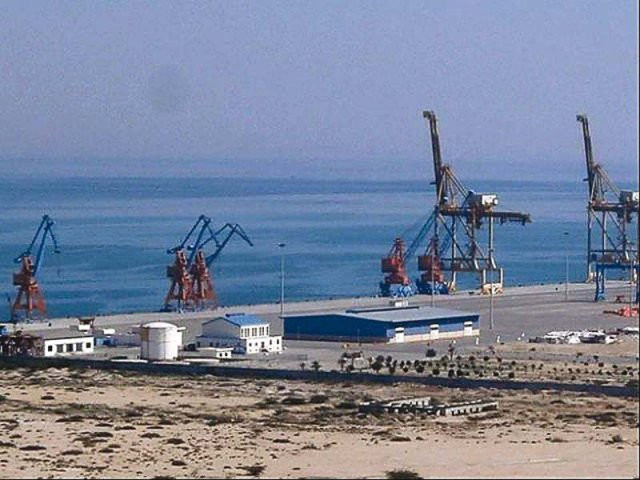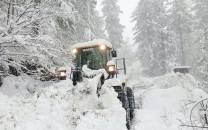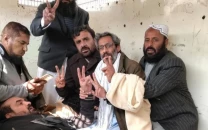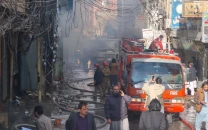Changing demographics fuel ethnic tensions- II
Changing demographic trends in Balochistan have pitched Baloch and Pakhtun nationalist groups against each other

Pakistan-China Economic Corridor PHOTO: FILE
Changing demographic trends in Balochistan have pitched Baloch and Pakhtun nationalist groups against each other. Amid the estranged relationship between the two major ethnic groups in the province, a number of key contemporary issues of national discourse, especially the China-Pakistan Economic Corridor and Gwadar port, are emerging.
There are clear lines of division between the Baloch and Pakhtun camps on the economic corridor.
For Baloch nationalists, preserving their demography in the province and their share in the provincial resources is of foremost importance. They appear ready to compromise on the most contentious issue of road routes under the project – provided their demographic dominance is preserved.
The Pakhtun nationalists, both in Balochistan and Khyber-Pakhtunkhwa, are more concerned about the proposed tracks and want the route passing through their areas to be made operational first.
Dr Jahanzeb Jamaldini, a fierce critic of the changing demographics in Balochistan, believes one of the ways to bridge the differences is to induct the Baloch population in mainstream politics. An important step in this direction is providing job opportunities to educated youth in federal institutions, where they currently have a 6% quota.
“We should not make the corridor issue controversial,” says Senator Jamaldini, the Balochistan National Party-Mengal vice-president, while sharing his views with The Express Tribune. “The Western or Eastern routes are secondary issues. Our main issue is the demographic changes. You can construct any route, [but] preserve our demography.”
However, he says Baloch nationalists had some reservations related to the Gwadar port.
“Millions of people will shift to the new port city. A city of 150,000 will become a city of 10 million people,” he predicts. This would bring large-scale changes in the demography of the province.
Balochistan has a 42-member provincial assembly according to its current population. “After the influx of people, more seats will be added to the legislature,” Jahanzeb fears. “We will become a minority in every respect. Even the chief minister will be an outsider!”
All Baloch nationalist parties, he claims, share the same concerns and want legislative guarantees for preserving the current demographics. “Also, give us our due share in Gwadar administration and build institutions, where locals can be trained to get jobs at the port,” he adds.

The Pashtoonkhwa Milli Awami Party (PkMAP), however, wants to bring more Pakhtuns. Now they are demanding Pakhtun corridor or Afghan corridor, I am not taking about them (Pakhtuns) but rest of us. We want legislation”.
According to him, this can be achieved by enacting laws that should bar outsiders from getting local CNICs, domiciles and registration as voters.
Senator says the grievances of his provinces started from denial of rights to the local people. Dejected by centre’s attitude, a segment of the Baloch adopted armed struggle. He said the current wave of insurgency that started after killing of Nawab Akbar Bughti in 2006 is somehow subsiding and there is a need to take corrective measures.
“Military operation has subsided insurgency. I cannot say if it is a transitional period or permanent change. But there is certainly some improvement. Centre should restore its credibility.
“If their (the ones that were into armed insurgency) thinking has changed and they want to become part of political process, they should be welcomed, But it should not happen like what happened in the past when promises were not fulfilled” he adds.
He says it is needed that steps be taken to make sure genuine Balochistan residents get jobs on their due quota. “With good understanding, people of other provinces get domicile of Balochistan and get jobs on our quota. Officials of DMG group, police and other departments when temporarily posted in Balochistan make CNICs and domiciles for their kids from the province and later get jobs on our quota,” he says.
He claims that there are hardly 20 per cent people genuinely from Balochistan who are recruited on the quota of province, adding that all the rest are outsiders.
Jamaldini gives examples from recent inductions in the Oil and Gas Regulatory Authority (Ogra) and Foreign Office.
“In Ogra five persons were recently inducted on Balochistan quota. They were relatives of officials of the organisation who had fake domiciles. We wrote to the PM and he has promised to investigate. Similarly in foreign office recently two drivers were recruited, they had fake domiciles from Balochistan. One was from Manshera and other from Pindi” the Senator says.
Lowering water table
Senator Jamaldini says the depleting water table in the province is the most important issue of Balochistan.
“Education is priority but our most important issue is water. Our society is on the verge of migration. If the federal government did not take immediate steps for conservation of water, Baloch areas would soon become deserts like Thar and Cholistan” he said. “Neither the incumbent provincial government nor the federal government is taking these issues seriously,” he added.
Published in The Express Tribune, November 30th, 2015.



















COMMENTS
Comments are moderated and generally will be posted if they are on-topic and not abusive.
For more information, please see our Comments FAQ